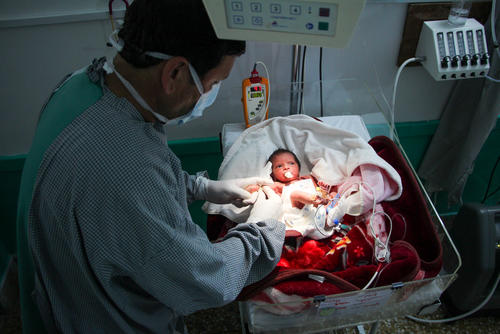Healthcare for women, children and newborns is a serious concern in Pakistan and remains our priority there. Women in rural areas die from preventable complications during pregnancy and delivery, and neonatal care is unavailable in many areas. According to the Pakistan Demographic and Health Survey, one in every 11 children dies before the age of five.
Why are we here?

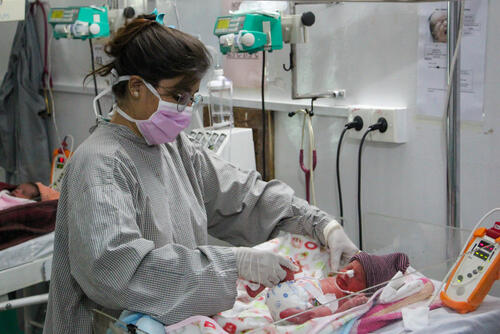
The availability of free, high-quality medical care is limited for women and children, particularly in rural areas. We work in four different locations in Balochistan and Khyber Pakhtunkhwa provinces to provide reproductive, neonatal and paediatric care. Local communities, Afghan refugees and people who cross the border from Afghanistan to seek medical assistance benefit from our comprehensive 24-hour emergency obstetric services, which include surgery and referrals for complicated cases. We also run inpatient and outpatient therapeutic feeding programmes for severely malnourished children in Balochistan.

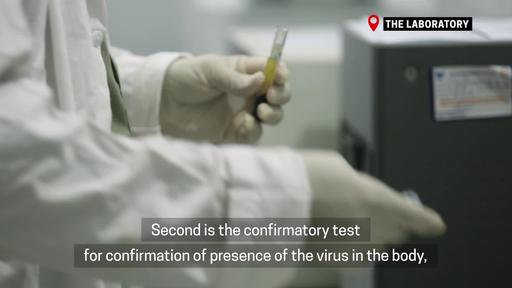
Cutaneous leishmaniasis, a disease transmitted by the bite of a sandfly, is endemic in parts of Pakistan. The disease is characterised by disfiguring and painful lesions. We run five treatment centres for this disease; three in Quetta, Balochistan, one in Bannu and one in Peshawar Khyber Pakhtunkhwa. Our teams offer diagnosis, treatment, health education and counselling. The cutaneous leishmaniasis programme has been expanded to the outskirts of Peshawar through MSF satellite clinics. In 2020, 3,363 patients were started on treatment for cutaneous leishmaniasis.
Pakistan also has one of the highest prevalence rates of hepatitis C globally. In a clinic we run in Machar Colony, a densely populated informal settlement in Karachi, we provided nearly 4,602 consultations for hepatitis C in 2020.

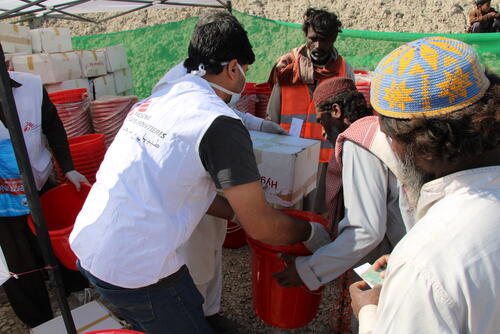
MSF supports the Pakistani authorities with emergency response preparedness in case of disease outbreaks or natural disasters. When floods hit the Sindh region in October 2020, as a post-emergency response , we set up mobile clinics that visited 25 flood-affected villages in Tehsil Johi. Two medical teams provided basic outpatient medical services to more than 4,000 patients over the course of a month. Also, essential relief kits were provided to 2,500 families affected by the floods in five union councils of Tehsil Johi.
Our activities in 2022 in Pakistan
Data and information from the International Activity Report 2022.
1,304
1,304
€25.7 M
25.7M
1986
1986
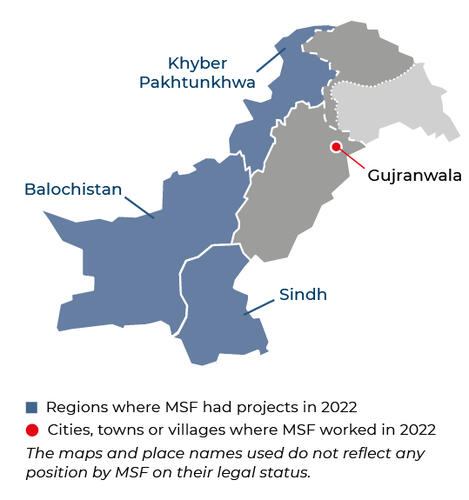

74M
74M
39,300
39,3
20,800
20,8

19,100
19,1
6,730
6,73
3,420
3,42

1,690
1,69

Separate mission to Pakistan opened

Emergency medical support following devastating floods in Pakistan

Enormous pressure on Afghan refugees to leave 'Waiting Area' on Pakistan border

MSF starts assistance for flood victims

Relocation back to Afghanistan starts for Afghan refugees in Pakistan

Increasing tensions in Kashmir worsen an already severe mental health situation

Up to 30,000 Afghans remain stuck on Pakistan border

Jalozai camp: a living cemetery





